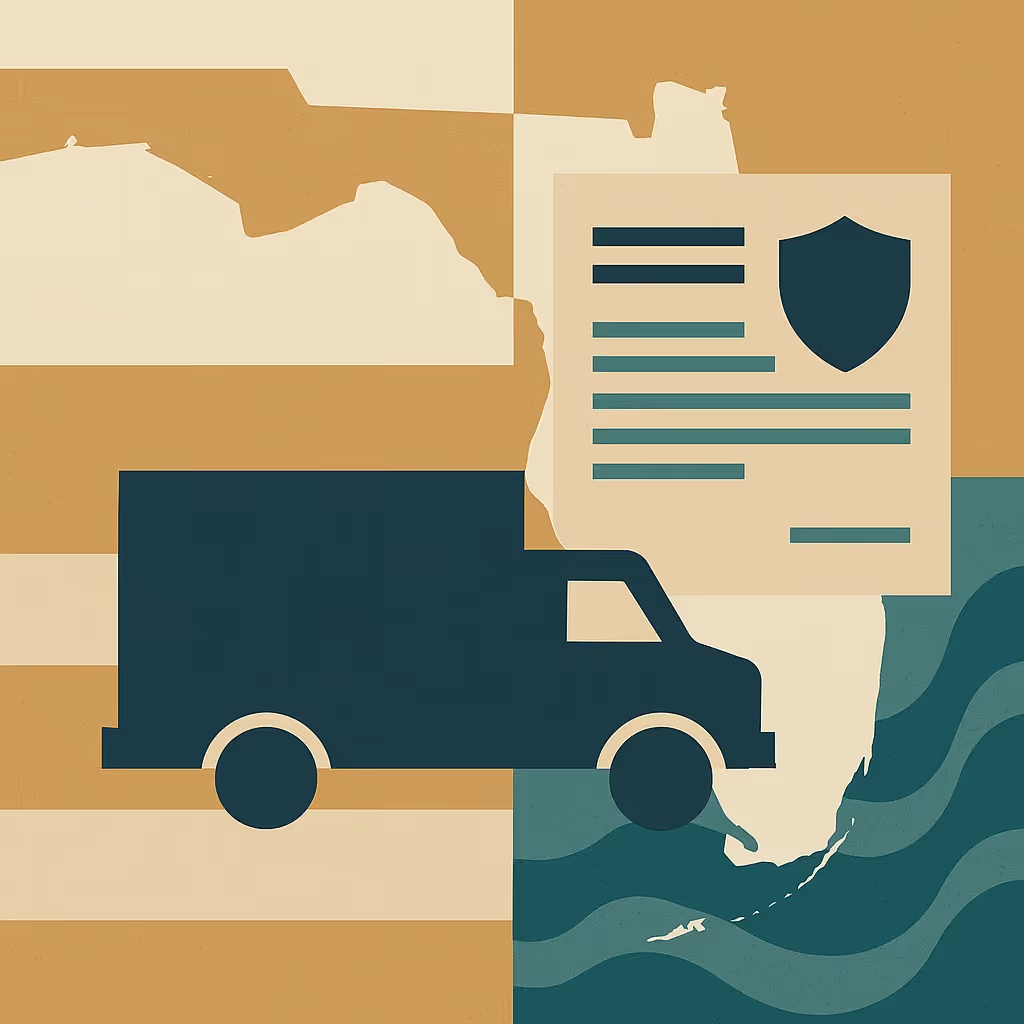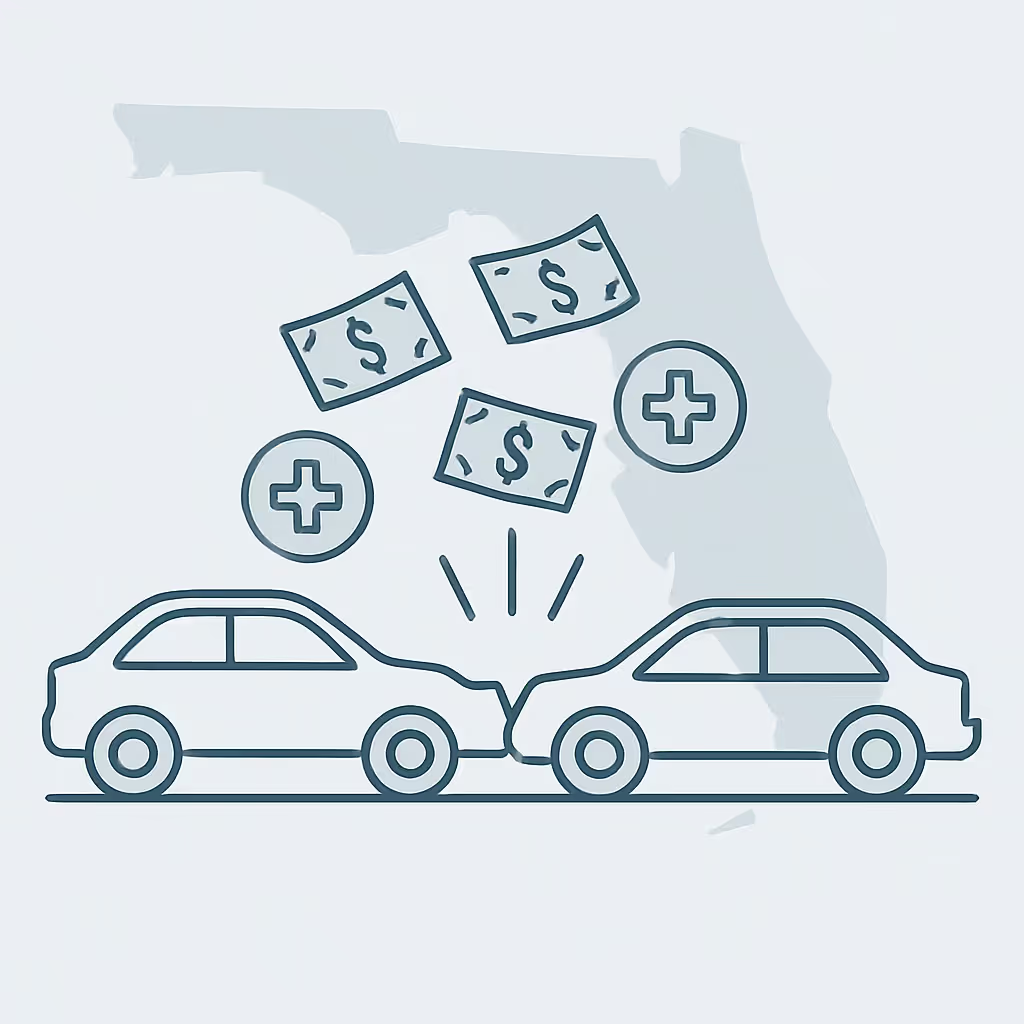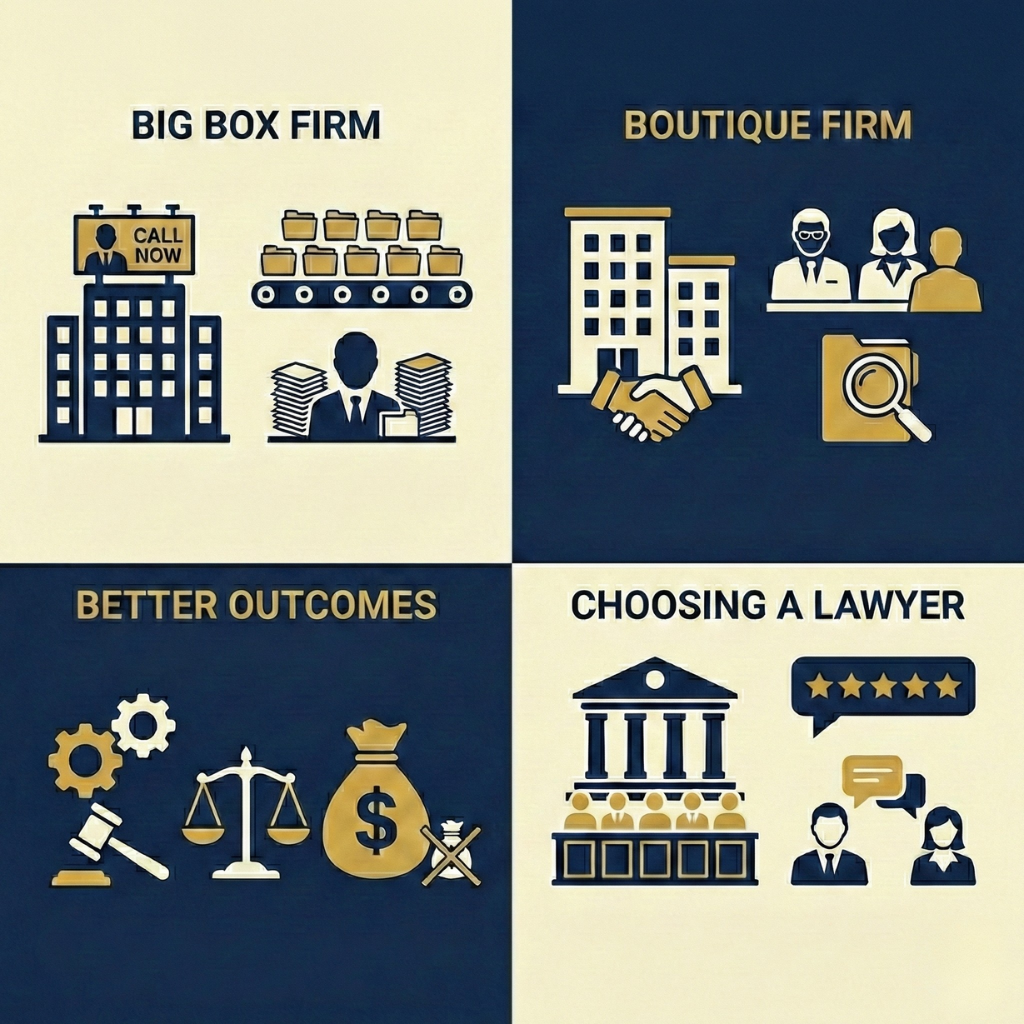How Long Does a Car Accident Settlement Take With a Lawyer in Florida?
Learn the realistic timeline for Florida car accident settlements. From medical recovery to trial procedures, Melbourne attorneys explain what to expect.
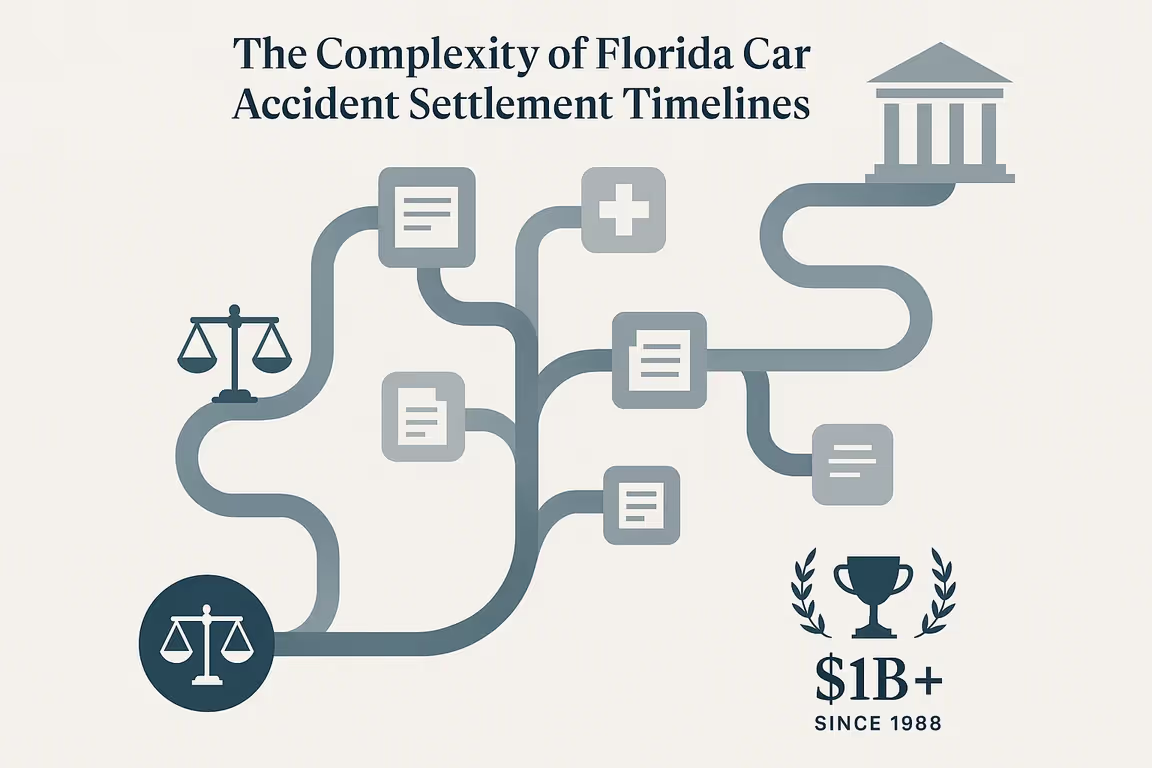
- Most Florida car accident settlements take 9 months to 2 years depending on injury severity and case complexity.
- Maximum medical improvement must be reached before serious settlement negotiations can begin with insurance companies.
- Experienced local attorneys can expedite the process while ensuring fair compensation through proper preparation.
Worried About Your Injury Case? We'll Review It - Free!
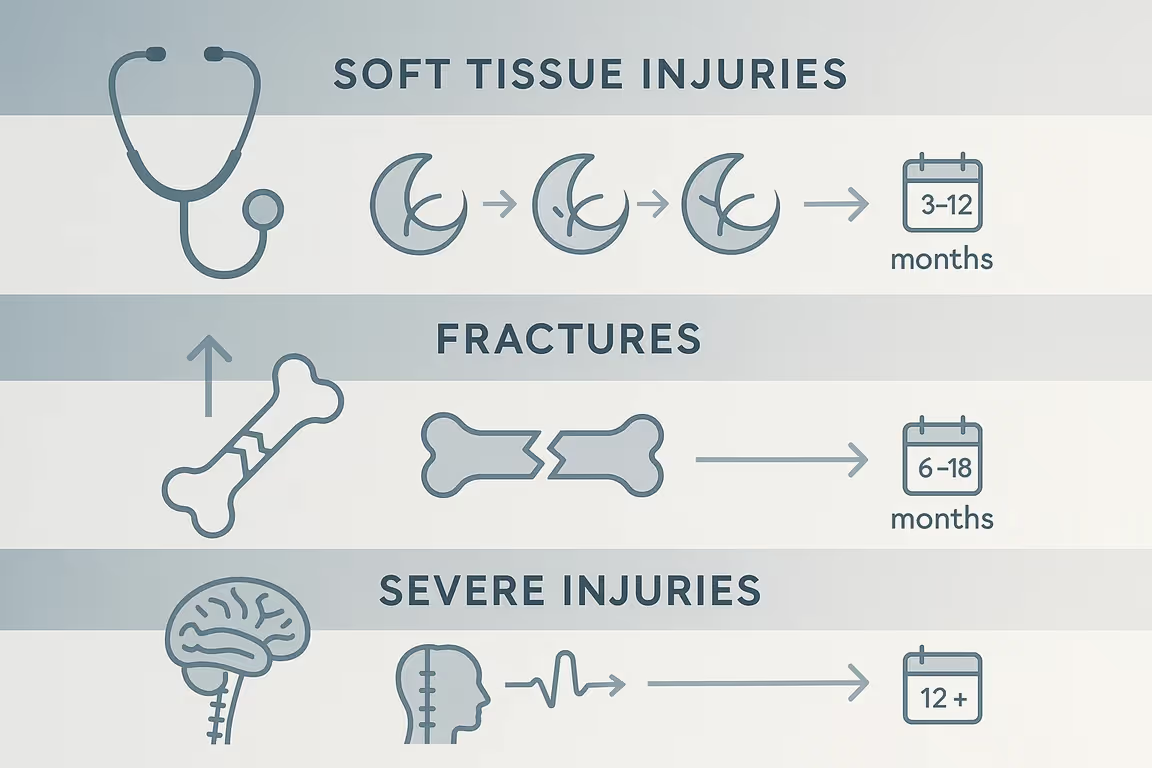

Understanding Florida Car Accident Settlement Phases
When you're recovering from a car accident in Florida, one of the most pressing questions on your mind is likely "how long will this take?" The answer isn't simple because car accident settlements involve multiple phases, each with its own timeline and requirements. Understanding these phases can help you set realistic expectations and make informed decisions about your case.
The timeline for your car accident settlement depends on several key factors: how long it takes you to recover from your injuries, how quickly insurance companies respond, whether your case requires litigation, and if it goes to trial, how efficiently the local court system processes cases. In Brevard County, where Douglas R. Beam has been representing injured clients since 1988, we've seen these timelines vary significantly based on case complexity and client circumstances.
In this guide, we'll walk you through each phase of the settlement process, from the moment you reach maximum medical improvement through potential trial proceedings in Brevard County courts. Our firm has secured over $1 billion in verdicts and settlements, including a landmark $28.5 million brain injury verdict right here in Melbourne, so we understand what it takes to navigate Florida's legal system effectively.
With nearly 40 years of experience handling car accident cases throughout Central Florida, we've learned that informed clients make better decisions and experience less stress during the settlement process. Let's examine what you can realistically expect during each phase of your car accident case.
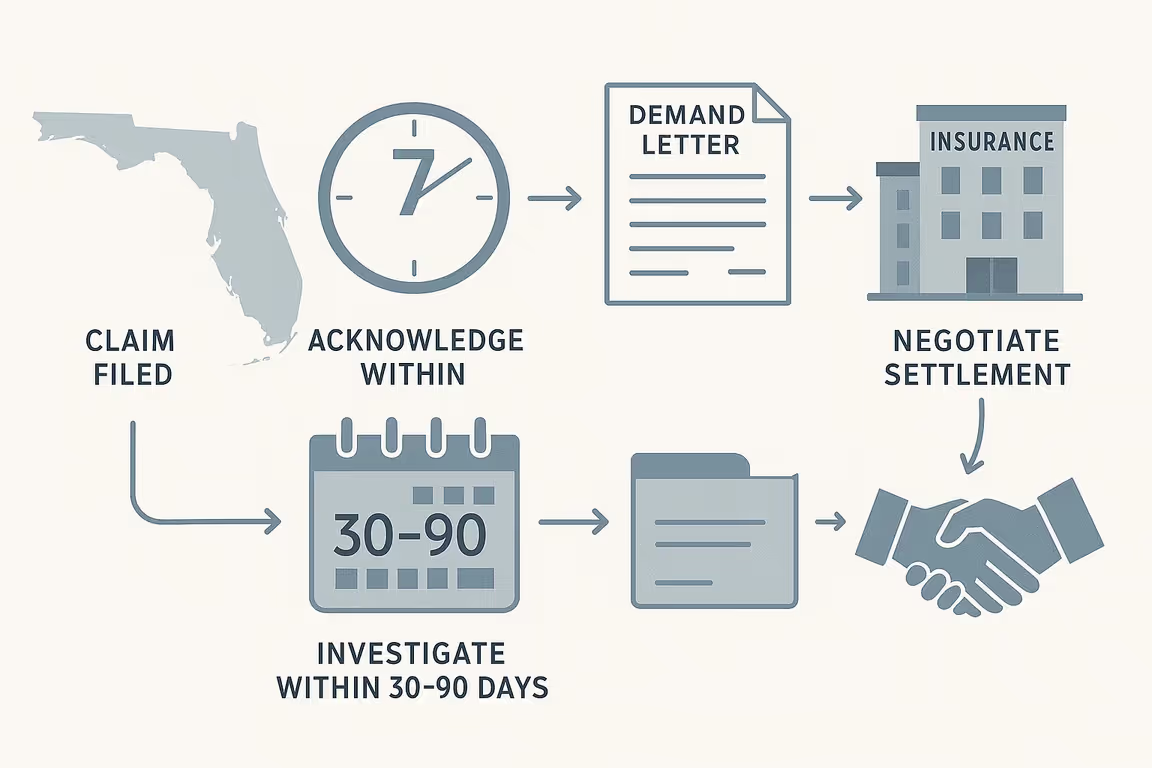
Medical Recovery and Maximum Medical Improvement
Before any meaningful settlement discussions can begin, you need to reach what doctors call "maximum medical improvement" or MMI. This is the point where your condition has stabilized, and further medical treatment is unlikely to significantly improve your symptoms. Understanding this timeline is crucial because insurance companies typically won't engage in serious settlement negotiations until they know the full extent of your injuries and future medical needs.
What Is Maximum Medical Improvement?
Maximum medical improvement doesn't mean you're completely healed or back to your pre-accident condition. Instead, it means your doctor has determined that your recovery has plateaued, and any ongoing symptoms or limitations are likely permanent. At this point, your medical team can provide a clear prognosis about your long-term needs, including future medical care, physical therapy, or assistive devices.
Your treating physician will evaluate factors like pain levels, range of motion, functional capacity, and response to treatment when determining MMI. This assessment becomes the foundation for calculating your total damages, including both economic losses (medical bills, lost wages) and non-economic damages (pain and suffering, loss of quality of life).
Expected Recovery Timelines by Injury Type
Soft Tissue Injuries and Whiplash (3-12 months)
The most common car accident injuries include whiplash, muscle strains, and soft tissue damage. According to medical treatment guidelines, these injuries typically require 3 to 12 months of treatment before reaching maximum medical improvement. However, recovery times vary significantly based on the severity of the initial injury and your individual healing response.
Fractures and Broken Bones (6-18 months)
Broken bones from car accidents usually require several months to heal, with complex fractures or multiple breaks extending the timeline. Simple fractures might reach MMI in six months, while compound fractures requiring surgery can take 12 to 18 months or longer.
Severe Injuries and Traumatic Brain Injuries (12+ months)
Serious injuries like traumatic brain injuries, spinal cord damage, or permanent disabilities can take a year or more to reach MMI. In our experience handling complex cases like our $28.5 million brain injury verdict in Melbourne, these cases require extensive medical documentation and expert testimony to properly evaluate long-term impacts.
Why MMI Matters for Your Settlement
Insurance companies use MMI as a benchmark because it allows them to calculate the total cost of your medical treatment, both past and future. Trying to settle before reaching MMI often results in inadequate compensation because you haven't yet discovered the full extent of your injuries or long-term needs.
If you're still in the recovery phase, focus on following your treatment plan and documenting your progress. Your Melbourne car accident attorney can help ensure all necessary medical documentation is being properly collected for your eventual settlement negotiations.
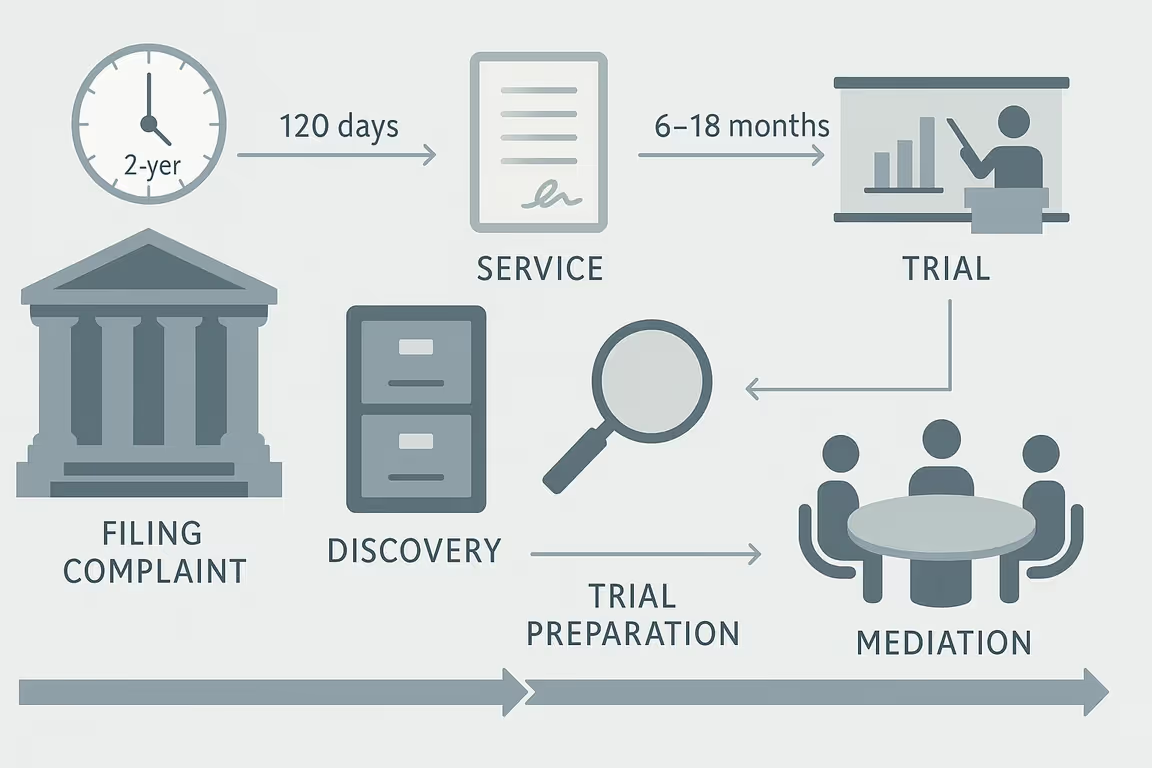
Insurance Company Response and Negotiation Requirements
Once you've reached maximum medical improvement and your attorney has compiled all necessary documentation, the next phase involves dealing with insurance companies. In Florida, specific laws govern how quickly insurers must respond to claims and communications, though these requirements don't always guarantee swift settlements.
Florida's 7-Day Acknowledgment Rule
Florida Statute 627.70131 requires insurance companies to acknowledge receipt of any claim-related communication within 7 calendar days. This includes demand letters, medical records submissions, and other formal correspondence. While 7 days might seem quick, this requirement only covers acknowledgment—not investigation or settlement decisions.
Investigation Periods and Response Times
After acknowledging your claim, insurance companies typically take 30 to 90 days to conduct their investigation. This process includes reviewing medical records, obtaining police reports, interviewing witnesses, and sometimes hiring their own medical experts to evaluate your injuries.
The Demand Letter Process
Your attorney will typically send a detailed demand letter to the insurance company outlining your injuries, medical expenses, lost wages, pain and suffering, and other damages. This letter serves as the formal start of settlement negotiations.
What Happens When Insurance Companies Delay
Unfortunately, some insurance companies use delay tactics to pressure injured parties into accepting lower settlements. When insurers fail to respond within reasonable timeframes or engage in bad faith practices, experienced attorneys like those at Douglas R. Beam P.A. know how to apply pressure and protect your interests.
Florida's No-Fault System Impact
Florida's no-fault insurance system adds another layer to settlement timelines. Your Personal Injury Protection (PIP) coverage provides immediate medical coverage up to $10,000 regardless of fault, but pursuing additional compensation requires meeting Florida's "serious injury threshold."
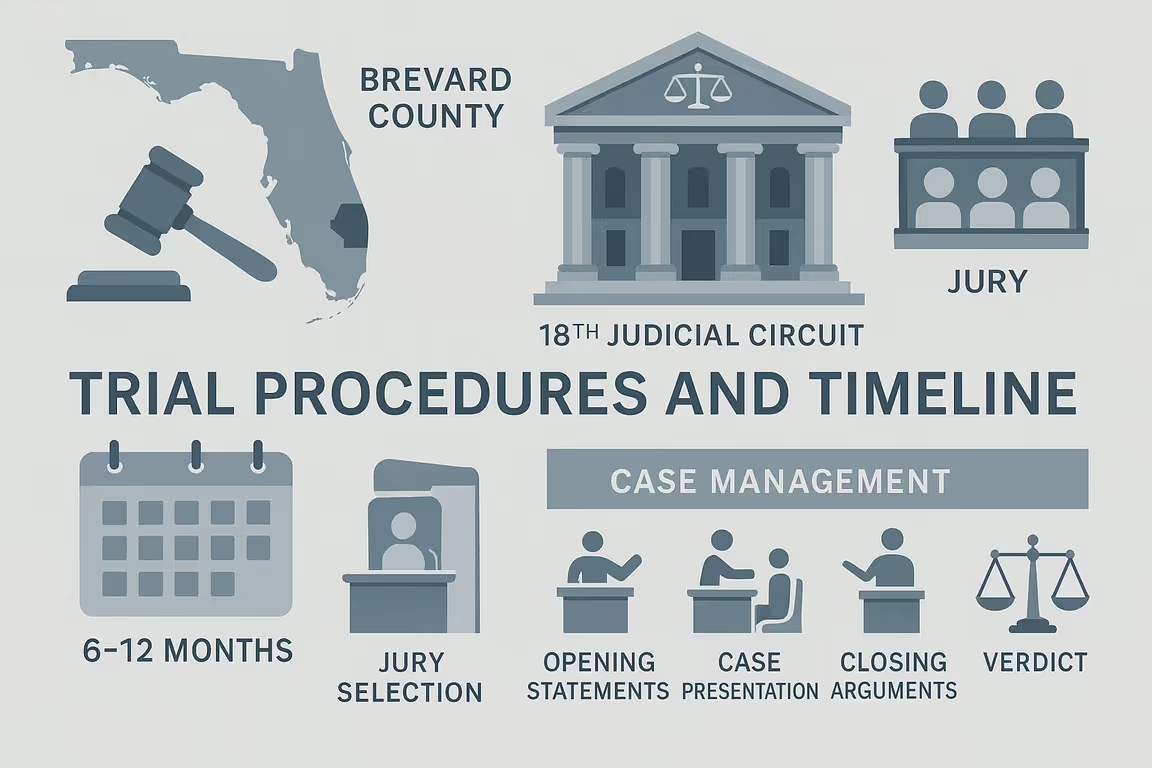
The Litigation Process When Settlement Negotiations Fail
If insurance companies refuse to offer fair compensation or deny your claim entirely, filing a lawsuit becomes necessary. Understanding the litigation timeline helps you prepare for what could be a lengthy but important process to secure the compensation you deserve.
Filing the Complaint
When settlement negotiations fail, your attorney will file a formal complaint in court. In Florida, you have two years from the date of your accident to file a personal injury lawsuit under Florida Statute 95.11, creating pressure to resolve cases before this deadline approaches.
Service of Process Requirements
After filing the complaint, Florida Rule of Civil Procedure 1.070(j) requires that the lawsuit be served on all defendants within 120 days. This rule is strictly enforced, and failure to serve within this timeframe can result in dismissal of your case.
The Discovery Phase (6-18 months)
Once the lawsuit is filed and served, both sides enter the discovery phase. This process allows each party to gather evidence, take depositions, request documents, and build their case. Discovery can last anywhere from six months to over a year, depending on case complexity and the cooperation of all parties involved.
Mediation and Alternative Dispute Resolution
Many Florida courts require mediation before allowing cases to proceed to trial. Mediation involves a neutral third party who helps both sides negotiate a potential settlement.
Preparing for Trial
If mediation fails to produce a settlement, your case will proceed to trial. Trial preparation involves finalizing witness lists, preparing exhibits, and conducting final depositions. This phase usually takes 2-6 months depending on court scheduling and case complexity.
Riley Beam, who works alongside Doug Beam at our Melbourne firm, has extensive trial experience and understands how to prepare cases for the best possible outcome, whether through settlement or verdict.
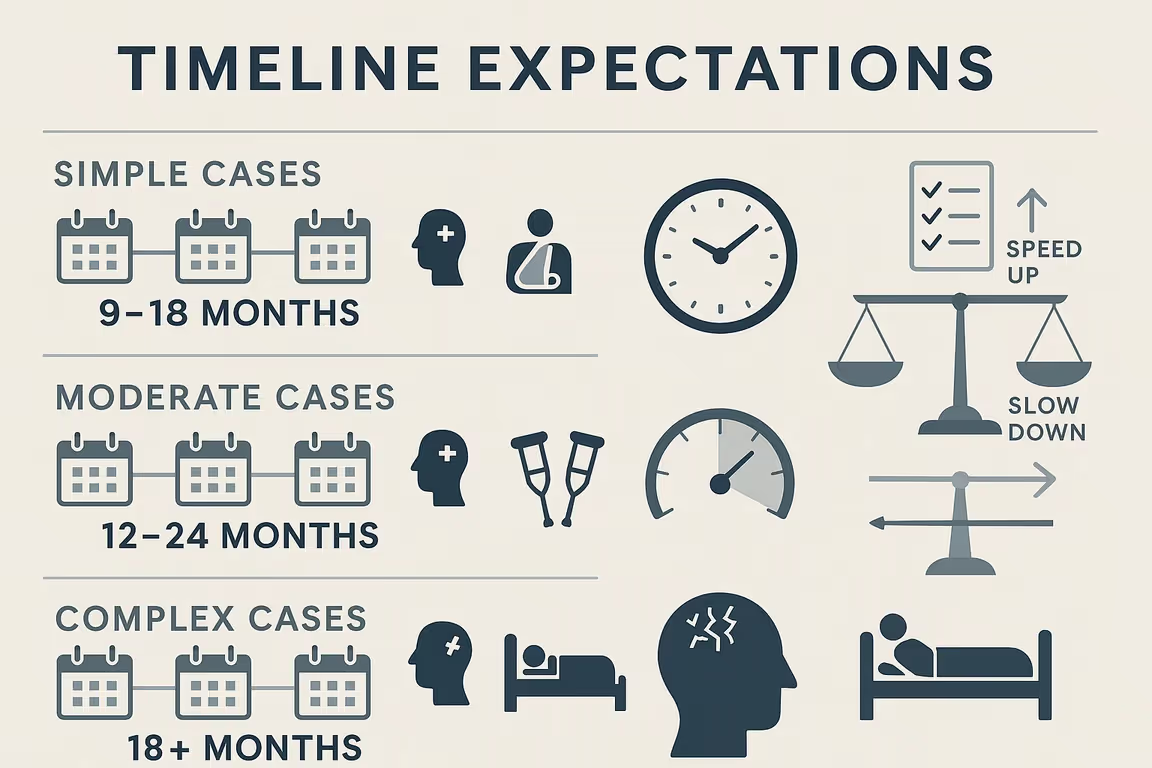
Brevard County Trial Procedures and Local Court Rules
If your case goes to trial in Brevard County, understanding local court procedures and timelines can help you prepare for this final phase of your case. The courts in Florida's 18th Judicial Circuit, which includes Brevard County, follow specific rules and schedules that affect how quickly your case will be resolved.
Case Management Orders in Brevard County
When your case is assigned to a judge in Brevard County, the court will issue a Case Management Order that establishes deadlines for all pre-trial activities. These orders are strictly enforced, and missing deadlines can have serious consequences for your case.
Typical Trial Scheduling in Brevard County
Once your case is ready for trial, it will be placed on the court's trial calendar. In Brevard County, personal injury trials are typically scheduled 6-12 months in advance, though emergency hearings or complex cases may affect this timeline.
What to Expect During Trial
Personal injury trials in Florida follow a predictable format: jury selection, opening statements from both sides, plaintiff's case presentation, defendant's case presentation, closing arguments, and jury deliberation and verdict.
Post-Trial Procedures
If you receive a favorable verdict, the defendant may file post-trial motions or appeals, which can extend the timeline. However, most cases conclude with the jury's verdict, and payment typically follows within 30-60 days unless appeals are filed.
Factors That Affect Trial Timing in Brevard County
Several factors specific to Brevard County can influence your trial timeline, including court calendar availability, local attorney schedules, seasonal variations, and case complexity.
Our office's location in Melbourne means we understand these local factors and can help you navigate Brevard County's court system efficiently. This local knowledge has been instrumental in achieving successful outcomes, including our $28.5 million brain injury verdict obtained right here in Melbourne.
Setting Realistic Timeline Expectations for Your Case
After walking through each phase of the process, you're probably wondering: "So how long will my case actually take?" While every case is unique, we can provide realistic expectations based on our decades of experience handling car accident cases in Florida and specifically in Brevard County.
Simple Cases with Soft Tissue Injuries
Total Timeline: 9-18 months These cases typically involve clear liability, cooperative insurance companies, and straightforward injuries that respond well to treatment.
Moderate Cases with Significant Injuries
Total Timeline: 12-24 months Cases involving fractures, multiple injuries, or disputed liability often fall into this category.
Complex Cases with Severe or Permanent Injuries
Total Timeline: 18+ months Cases involving traumatic brain injuries, spinal cord damage, or wrongful death claims require extensive preparation and often proceed to trial.
Factors That Can Speed Up Your Case
Clear liability, cooperative medical providers, experienced legal representation, and client cooperation all contribute to faster resolution.
Factors That Can Slow Down Your Case
Disputed liability, complex injuries, multiple defendants, and insurance company delays can significantly extend timelines.
How Recent Florida Law Changes Affect Timelines
Florida's 2023 tort reform legislation (HB 837) has introduced new requirements that may affect case timelines, including modified rules for expert witnesses and revised statutes of limitations.
The Importance of Patience and Preparation
While waiting for your case to resolve can be frustrating, rushing to settle often results in inadequate compensation. Our experience securing over $1 billion in total recoveries has taught us that thorough preparation and patience typically yield better results.
Ready to discuss your case timeline? Call us at (321) 723-6591 for a free consultation where we can provide a more personalized timeline estimate based on your specific circumstances.
Please remember, this article provides general information based on Florida law and is intended for educational purposes only. It does not constitute legal advice and should not be relied upon as such. Every case is unique, and the information here may not apply to your specific circumstances. Reading this article does not create an attorney-client relationship. For advice tailored to your situation, please consult with a qualified attorney.
Not Sure What To Do Next? We Can Help – Fast & Free.
Worried About Your Injury Case?
We'll Review It - Free
Don’t miss an article
Florida law, local insights, and the occasional dog pic.
Delivered straight to your inbox.
More articles
Browse all articlesFree Case Review
Get a complimentary review of your case

.webp)
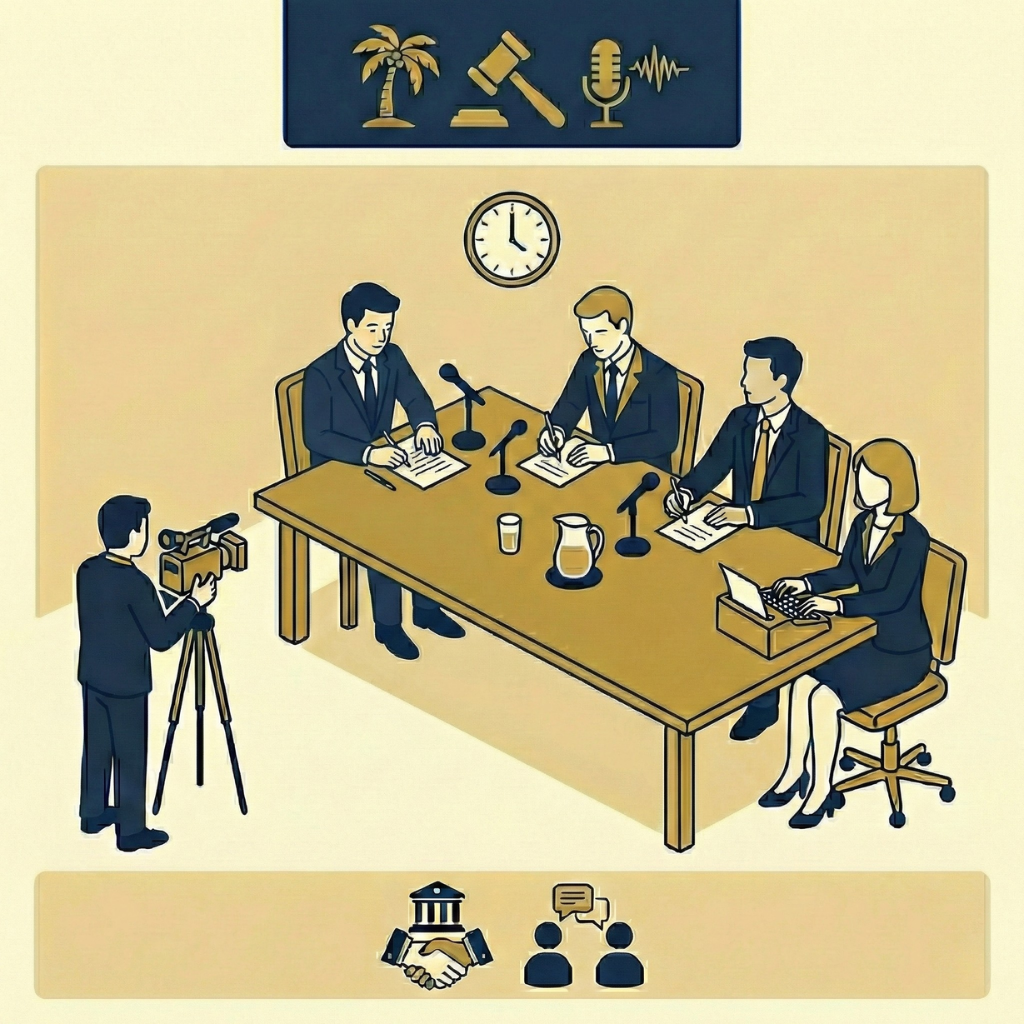
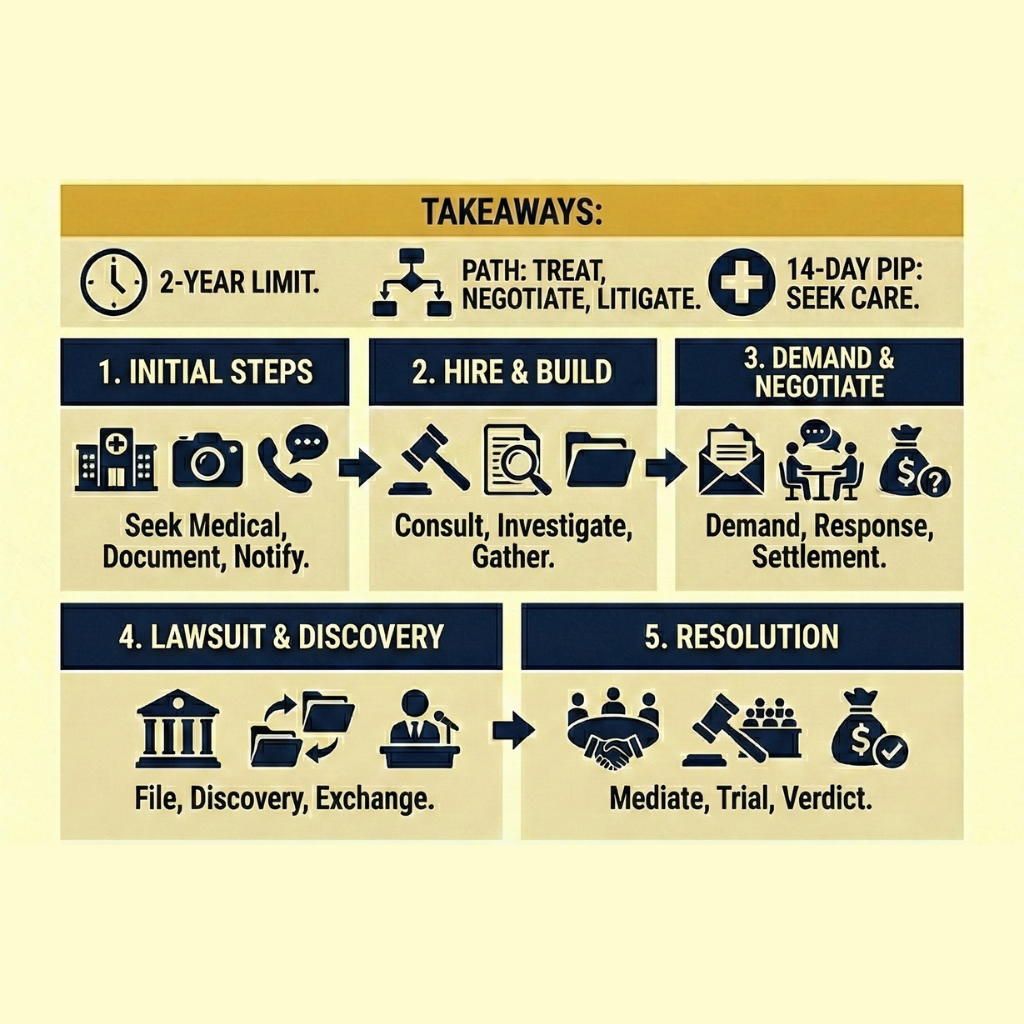



.png)
